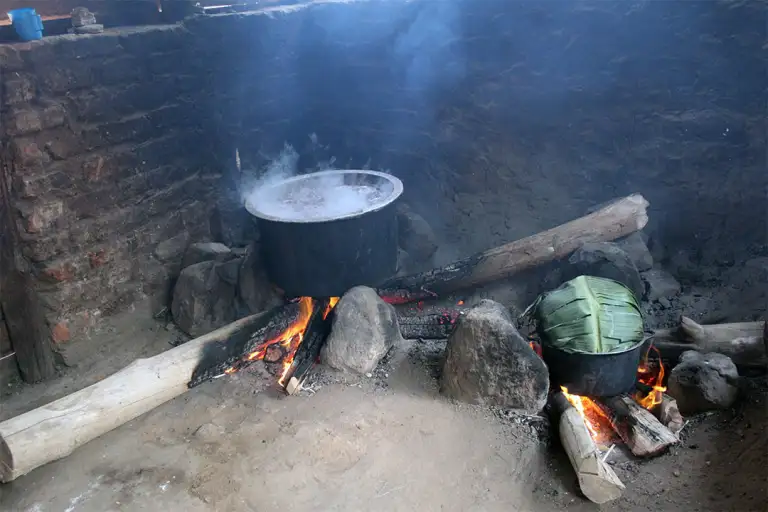
Uganda’s cooking sector heavily relies on biomass, with 94% of households using it as their primary cooking fuel. Of these, 73% use firewood, while 21% depend on charcoal. This widespread use of biomass significantly contributes to indoor air pollution, which poses severe health risks. Poor households often use inefficient cooking methods, such as the three-stone fire or basic charcoal stoves, which emit high levels of harmful pollutants like carbon monoxide and fine particulate matter. These pollutants are linked to respiratory diseases, particularly affecting women and children who spend more time near cooking fires.
Indoor air pollution is a leading cause of preventable deaths in Uganda. For example, exposure to smoke from biomass fuel is associated with chronic obstructive pulmonary disease (COPD) and childhood pneumonia. Furthermore, the reliance on firewood and charcoal exacerbates environmental degradation, with deforestation rates alarmingly high due to wood harvesting for fuel.
Clean Air Network is addressing this issue by promoting biogas as a sustainable alternative to biomass fuel for cooking. Biogas, derived from organic waste, burns much cleaner than traditional biomass, significantly reducing harmful emissions. Through educational campaigns and community-based projects, Clean Air Network is helping households transition to biogas by providing affordable biodigesters. These biodigesters not only reduce indoor air pollution but also generate organic fertilizers, contributing to both environmental sustainability and improved public health. By offering an alternative that mitigates the negative health and environmental impacts of biomass cooking, Clean Air Network aims to create healthier, more sustainable communities in Uganda.
